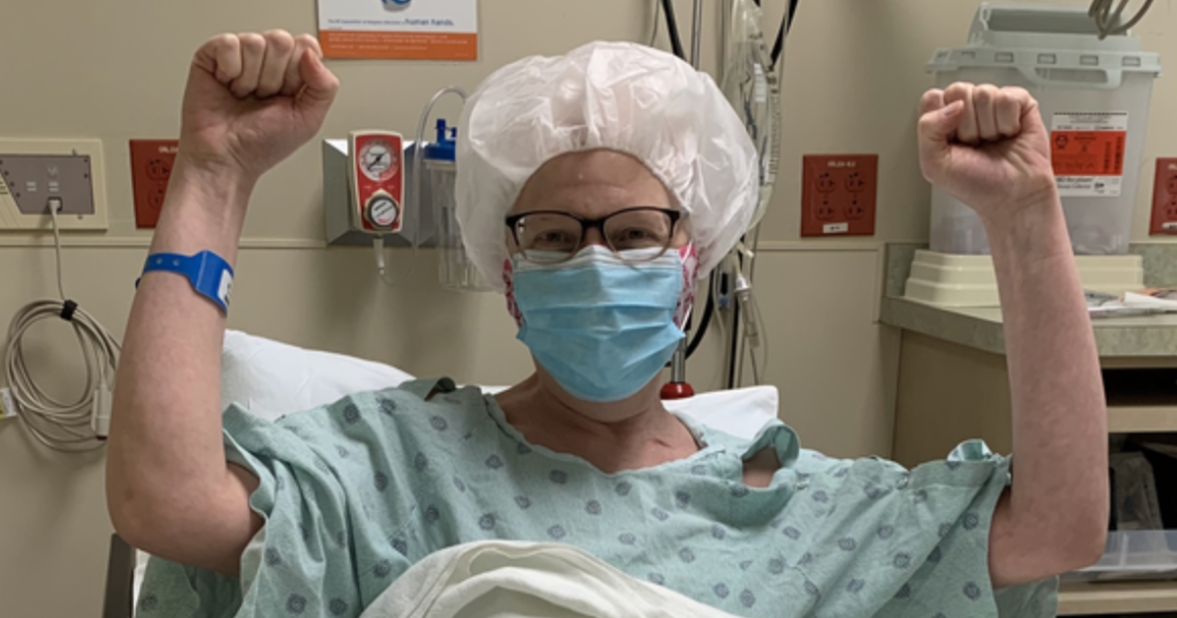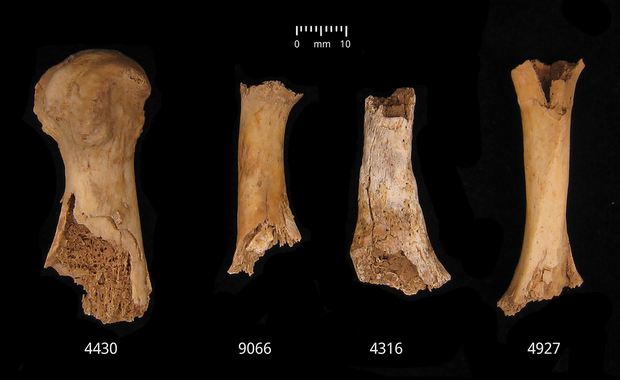CBS News
She skipped a routine screening. Doctors found 2 types of cancer

In 2020, with the COVID-19 pandemic sweeping the globe and people staying home and keeping their distance, Morgen Chesonis-Gonzalez did what about 41% of Americans did during that “anxiety-filled time”: She skipped a medical appointment. In her case, it was her annual screenings, which the Miami public school clinical art therapist typically did in the summer.
But that August, persistent pain in her armpit forced the mom of two to summon her courage and schedule a mammogram. The already-stressful situation was made even more alarming by protocols that made the hospital feel “like a ‘Twilight Zone’ episode,” Chesonis-Gonzalez said.
But the truly surreal moment came with her diagnosis. With two masks on and her husband listening in from the car, she had to ask the oncologist to repeat it, thinking she’d misheard.
She had two forms of breast cancer.
Morgen Chesonis-Gonzalez
Treating two forms of breast cancer
Chesonis-Gonzalez was diagnosed triple-negative breast cancer in her left breast, which does not have the receptors of other types of cancers and can be more aggressive and harder to treat. She also had a hormone receptor positive invasive ductal cancer in a separate area of the same breast.
The two forms of cancer meant that Chesonis-Gonzalez would have to undergo aggressive treatment, said Dr. Starr Mautner, a breast surgical oncologist at Miami Cancer Institute in Florida. Mautner was one of the doctors on Chesonis-Gonzalez’ team. Having two forms of cancer at once like this is rare, Mautner said, but not unheard-of, estimating that it would likely happen only in about 5 or 6% of breast cancer patients.
Treatment began just as the school year started. As she taught her students online, Chesonis-Gonzalez also underwent four months of chemotherapy meant to shrink her tumors.
During those chemotherapy sessions, Chesonis-Gonzalez sat alone in the hospital, unable to have someone by her side because of pandemic restrictions. Friends and family couldn’t risk visiting, especially while she was immunocompromised, so meals with notes of well-wishes were left on the back porch. Her husband continued to attend oncology meetings by phone, taking notes in the hospital parking lot.
After the months of chemotherapy, Chesonis-Gonzalez underwent a bilateral mastectomy.
Morgen Chesonis-Gonzalez
“Since I was only 47, the anxiety of constantly worrying for the rest of my life when cancer might appear in the healthy breast was too much to bear,” Chesonis-Gonzalez said. Once again, she went into the hospital alone. The surgery included tissue expanders, or empty implants placed during surgery to make completing breast reconstruction easier later.
After the surgery came physical therapy to regain the range of motion in her chest and shoulders. She had a specific goal in mind: To be able to raise her arms over her head and hold the position long enough for radiation treatment. The physical therapy was difficult, but eventually she was able to begin daily photon radiation sessions, targeting the right breast to ensure no cancer remained.
Mautner said that after ten months of active treatment, there were no signs of cancer in any samples taken from Chesonis-Gonzalez. After six months of healing, she was able to get reconstruction surgery, exchanging the tissue expanders for breast implants. Now, three years later, Chesonis-Gonzalez is almost done with her maintenance endocrine therapy, which helps ensure that the cancer won’t return.
Morgen Chesonis-Gonzalez
Breast cancer symptoms and screenings
One in 8 women will be diagnosed with breast cancer in their lifetime, Mautner said. Mammograms are “crucial in detecting a potential problem in its beginning stages,” she said, and women should begin getting them regularly at age 40.
People who are higher-risk due to genetic markers, family history or breast density should ask their doctors about a breast MRI, Mautner said, since that find lesions that a mammogram may not pick up.
It’s also important to be aware of signs of breast cancer, said oncologist Dr. Christina Annunziata. Persistent pain in the armpit like Chesonis-Gonzalez experienced can be a sign, especially of more advanced cancer, she said. People should also watch for skin redness, changes in the breast’s nipple or a lump in the breast. Mautner added that discharge from the nipple can also be a sign of breast cancer.
Annunziata said that while screenings dropped off during the pandemic, they have since returned to normal levels.
CBS News
Dozens of Britons were “killed and butchered” and then cannibalized after Bronze Age massacre, research shows

New research suggests that dozens of Bronze-Age era Britons were killed in an attack unlike any previous known to archaelogists studying that time period and location.
The research on human remains from Charterhouse Warren in southwest England, conducted by a team of researchers from multiple institutions including Oxford University, was published in Antiquity, a journal of world archaeology. It found that at least 37 Bronze Age-era men, women and children were “killed and butchered” and then cannibalized, with their bodies then thrown down a nearly 50-foot deep natural shaft. While archaeologists have found the remains of Bronze Age and later Britons who died violently, those incidents were largely isolated. Mass graves from this era have also been found, but the remains were laid to rest respectfully, unlike those studied.
Researchers first became aware of the shaft in the 1970s. Two excavations were conducted in the 1970s and 1980s. The human remains, as well as some artifacts including a flint dagger, were found at multiple spots in the shaft during these digs. More than 3,000 individual human bones and bone fragments have been recovered overall. Those bones were used to estimate that at least 37 individual sets of remains were in the shaft. Different bone lengths show that the people killed were both male and female, and ranged in age from infants to grown adults. Ongoing research is working to determine how the people were related to each other.
The way the remains were disposed of made the detailed examination possible, the researchers said. The shaft helped preserve the bones and keep them grouped together.
Cambridge University Press on behalf of Antiquity Publications Ltd
The bones “display clear evidence of blunt force trauma,” according to researchers, suggesting that many of the people in the shaft “suffered a violent death.” Other injuries, including removal of the scalp and severed muscles in the jaw suggesting removal of the tongue or lower jaw, also likely occurred, evidenced by marks on the bones, the researchers said. Some of the victims may have been beheaded or dismembered.
It’s possible that the victims were held captive or ambushed, because of the severity of the injuries, the researchers said. It’s not clear who could have carried out the attacks.
There is also evidence that the bodies were cannibalized, the researchers said, including human teethmarks on the bones and indicators that marrow, the soft tissue inside bones, was removed. The researchers said the cannibalism was likely conducted “within a context of a violent conflict, in which individuals are dehumanized and treated as animals.”
“Some 37 men, women and children—and possibly many more—were killed at close quarters with blunt instruments and then systematically dismembered and defleshed, their long bones fractured in a way that can only be described as butchery,” the researchers said.
Later in the publication, the researchers referred to the scene as a “massacre,” and suggested it may have even been a “political statement” of violence so brazen it would have “resonated across the wider region and over time.” However, it’s not clear what could have led to the violence: “Neither climate change, ethnic conflict nor competition over material resources seem to offer convincing explanations,” according to the researchers, leaving the only likely option that the violence broke out as part of a pattern of revenge or violence between communities.
“At this stage, our investigation has raised as many questions as it has answered,” the researchers said. “Work is ongoing to shed more light on this decidedly dark episode in British prehistory.”
CBS News
Trump team working out immigration plans, pushing for large-scale deportations

Watch CBS News
Be the first to know
Get browser notifications for breaking news, live events, and exclusive reporting.
CBS News
Breaking down the judge’s rejection of Trump’s immunity claim in “hush money” case

Watch CBS News
Be the first to know
Get browser notifications for breaking news, live events, and exclusive reporting.












